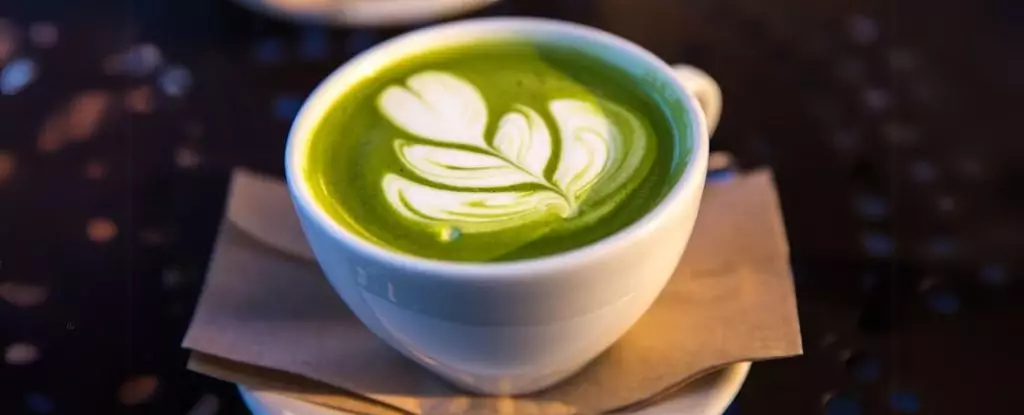Matcha has risen to prominence in the health and wellness world, not just as a trendy beverage, but as a symbol steeped in rich cultural heritage. Its radiant green color, reminiscent of lush green landscapes, belies the laborious journey it undergoes from plant to cup. The origins of matcha trace back to China, where it was originally developed as a powdered tea. However, it found its true expression in Japan, particularly in the form of the meticulous tea ceremonies that have become integral to Japanese culture since the 12th century. This ancient drink was cherished by Buddhist monks for its ability to enhance mindfulness during meditation, reflecting a profound interconnection between nature and well-being.
The cultivation of matcha is what sets it apart from your regular cup of green tea. By shading the plants weeks before harvest, growers maximize the production of chlorophyll and amino acids, enriching the flavor and nutritional content. These practices not only enhance the vibrancy of its hue but also amplify its health benefits. When the leaves are ground into a fine powder, they deliver a unique taste experience that is both invigorating and calming, a true fusion of complexity and simplicity.
Health Benefits: More Than Just Antioxidants
Matcha is often heralded as a superfood, boasting a range of health benefits attributed to its impressive concentration of polyphenols, particularly catechins. These compounds are potent antioxidants that offer generous protection against free radicals, which harm cellular integrity. Research has proposed numerous potential health advantages associated with regular matcha consumption, from anti-inflammatory properties to improved metabolic functions.
However, while laboratory studies have showcased these promising effects—ranging from antimicrobial properties to even potential anti-cancer effects—it is paramount to remain cautious. Most findings stem from in vitro or animal models, and robust human clinical studies are still sparse. Therefore, while matcha certainly deserves its reputation, one should not regard it as a miracle cure but rather a valuable addition to a balanced diet and healthy lifestyle.
Another critical aspect of matcha’s appeal lies in its caffeine content. Unlike regular green tea, which possesses lower caffeine levels, matcha delivers a modest yet impactful caffeine boost akin to coffee. This mode of action offers several acknowledged health benefits, including enhanced focus and a more stable energy curve, primarily due to a substance found in matcha known as L-theanine. This amino acid assists in creating a calming effect, countering the jitteriness that can accompany caffeine consumption, ultimately making it a suitable option for those who are sensitive to traditional coffee’s stimulating qualities.
Matcha vs. Coffee: Finding Your Personal Brew
When juxtaposed against coffee, matcha is often compared in terms of flavor profile, health benefits, and caffeine effects. While both beverages offer unique antioxidants and cardiovascular benefits, coffee has been subject to extensive clinical scrutiny, yielding more definitive consumption guidelines. Most health experts recommend limiting coffee intake to three to four cups per day, harmonizing fiber with anti-inflammatory benefits while avoiding adverse effects linked to excessive caffeine intake.
Conversely, matcha consumption is generally advised at a moderate level, varying between one to three cups daily. This limitation may be due to its higher polyphenol concentration, which, while beneficial, can also lead to side effects if consumed in excess. An intriguing consideration in this comparison is how both beverages affect iron absorption. Reports suggest that excessive indulgence in either drink, particularly around mealtime, can hinder the body’s ability to assimilate iron from plant-based sources, making mindful timing essential for those particularly susceptible to iron deficiency.
The Zen of Sipping: A Mindful Approach to Beverages
Engaging with matcha and coffee transcends mere consumption; it embodies a philosophy of mindfulness and balance. Each cup serves as a reminder to pay attention to one’s body and its responses. When considering these beverages, the route to better health is paved by individuality. For those who thrive on routine and caffeine, coffee may provide blissful satisfaction. In contrast, for individuals seeking a gentler energy rise and antioxidant punch without the aftermath of jitters, matcha serves as an unparalleled choice.
Though each drink presents distinct advantages, one essential tenet unites them: moderation remains key. Whether it’s the way one schedules their consumption or how they allow these drinks to accompany their meals, being aware of the balance fosters not only a healthy lifestyle but also a deeper appreciation for these revered traditions. Thus, in celebrating the healing properties of both matcha and coffee, one embraces the nuanced flavors of life itself.


Leave a Reply